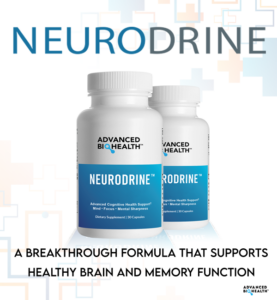Can ginkgo biloba really improve memory?

Ginkgo biloba is a popular herbal supplement that is often taken in the hopes of improving memory. But does it actually work? This article will take a look at the science behind ginkgo biloba to see if there is any evidence to support its use for memory enhancement.
What is ginkgo biloba?
Ginkgo biloba is a plant that has been used for centuries in traditional Chinese medicine. Its leaves are often used to make tea, and extracts from the leaves are thought to have medicinal properties. Some people believe that ginkgo biloba can improve memory, and there is some scientific evidence to support this claim.
How does ginkgo biloba work?
Ginkgo biloba is a popular herbal supplement that is often taken in an effort to improve memory, particularly in older adults. But how does it actually work?
There is some evidence that ginkgo biloba can help to improve blood circulation, including to the brain. This might theoretically help to improve cognitive function by providing more oxygen and nutrients to the brain.
However, the research on ginkgo biloba’s effects on memory is mixed. Some studies have found benefits, while others have not. It’s possible that the supplement only helps certain people, or that any benefits are small and not clearly noticeable.
If you’re considering taking ginkgo biloba for memory improvement, it’s important to talk to your doctor first. The supplement can interact with some medications and may not be suitable for everyone.
What are the benefits of taking ginkgo biloba?
Some people swear by ginkgo biloba as a memory-booster, and there is some scientific evidence to support this claim. A 2012 study found that ginkgo biloba significantly improved memory and thinking skills in people with Alzheimer’s disease.
Other research has shown that ginkgo biloba can improve memory in healthy adults, although the effects are usually mild and temporary. Some scientists believe that the herb works by increasing blood flow to the brain, which may help to preserve cognitive function.
If you’re considering taking ginkgo biloba for memory purposes, it’s important to speak with your doctor first. The herb can interact with certain medications and may not be appropriate for everyone.
Are there any side effects to taking ginkgo biloba?
Ginkgo biloba is a herbal supplement that is often taken in order to improve memory. However, there are some potential side effects that should be considered before taking this supplement. These side effects can include: headaches, nausea, dizziness, and gastrointestinal problems. Additionally, ginkgo biloba can interact with certain medications, so it is important to speak with a healthcare provider before starting any new supplements.
Who should take ginkgo biloba?
If you’re considering taking ginkgo biloba for memory improvement, it’s important to know that the supplement may not be right for everyone. Check with your doctor before taking ginkgo biloba, and be aware that the supplement can interact with some medications. Ginkgo biloba is generally considered safe, but side effects can include headache, nausea, and dizziness.
How to take ginkgo biloba
There are many ways to take ginkgo biloba, but the most effective way is to consult with a healthcare professional to find the method that’s best for you. Some people take ginkgo biloba in the form of capsules, tablets, or tea. If you’re taking the supplement to improve your memory, it’s important to take it consistently for at least six weeks to see any benefits.
Conclusion
There is no conclusive evidence that ginkgo biloba can improve memory, but there are some studies that suggest it may be helpful for people with mild cognitive impairment. If you’re interested in trying ginkgo biloba, talk to your doctor first to see if it’s right for you.






